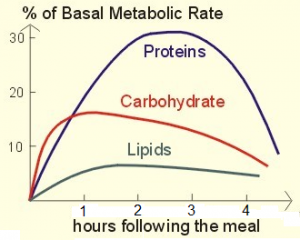Directly after consuming a meal, no matter the time of day, I am instantly in need of a nap. I knew that I could not be alone in this immediate fatigue, and I was curious to find out why this occurs.
A “food coma” is the 21st century term for this state of lethargy after eating a meal, and for some people, including myself, it is unavoidable. The scientific term for this fatigue postprandial somnolence – postprandial meaning after a meal, and somnolence meaning drowsiness. But why does this happen?
To understand why this phenomenon occurs, one must understand what happens in the body when food is consumed. While eating, food enters the stomach, and the hormone gastrin is released. Gastrin helps to break down food into smaller pieces, and these pieces will then travel to the small intestine. Similarly in the small intestine, another hormone, enterogastrone, is released. This hormone is specifically responsible for regulating blood flow, which is altered when a meal is consumed.
As the body is working hard to digest food, more blood is pumped to the digestive organs, in order for nutrients to be absorbed and transported. Consequently, there is lower blood-flow to the other regions of the body, which results in feeling tired or light-headed. Specifically, there are a couple important factors that influence food comas that need to be considered.
Not only is postprandial somnolence affected by the amount of food consumed, but it also affected by the type of food. Presumably, the more a person eats, the more the body has to increase blood-flow, in order to break down these foods.
However, another important factor has an effect on the strain placed on the digestive system, and that is food composition. It has been proven that certain foods are more difficult to digest, which includes grains, dairy, proteins, and carbohydrates. When these foods are eaten, the metabolic rate of the digestive system increases, which in turn increases blood flow to these areas. Thus, you can expect to feel a more intense “food coma” if consumption of these foods is increased.

By CC BY 2.5, pharmpedia.com
Now, if a nap cannot be scheduled into the day, it might be necessary to recover from this induced state as fast as possible. Primarily, drinking water is the best solution. It can help the flow of food increase through your digestive system, and also help to dilute excess stomach acid. Additionally, going for a brisk 30 minute walk can help to boost your metabolism, which will also increase digestion, allowing you to feel more awake.
As the food coma phenomenon becomes more widely experienced, people have begun to plan their meals, and insure both nutrients and portion sizes are balanced. Yet, if meal preparation or consciousness is not something you can fill in your schedule, be sure to have a bed or couch nearby!
By Alexis Llewellyn

